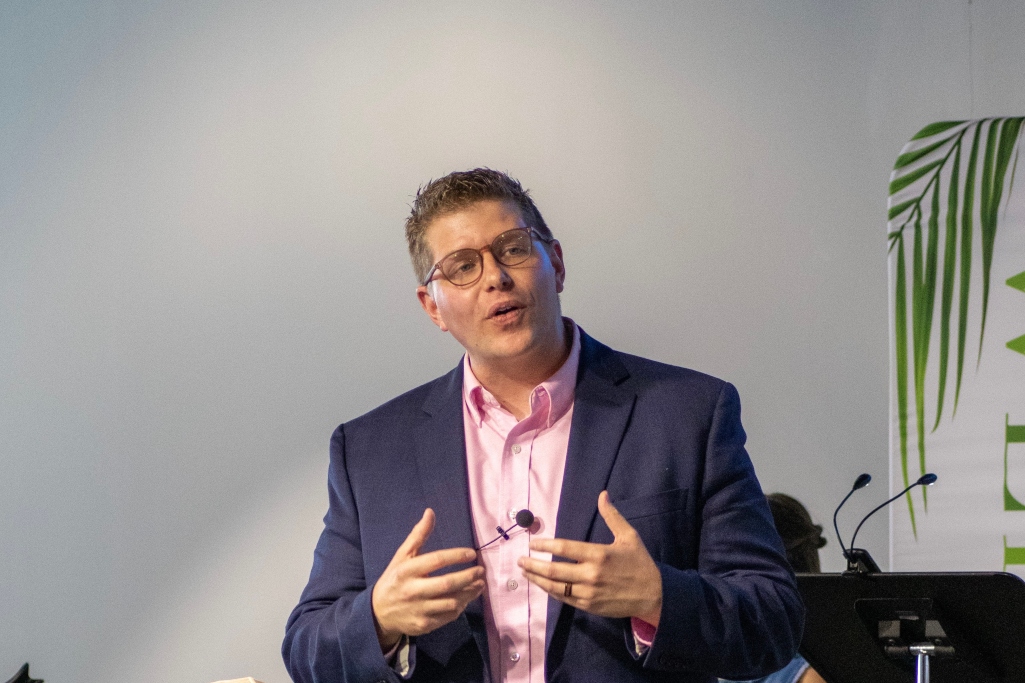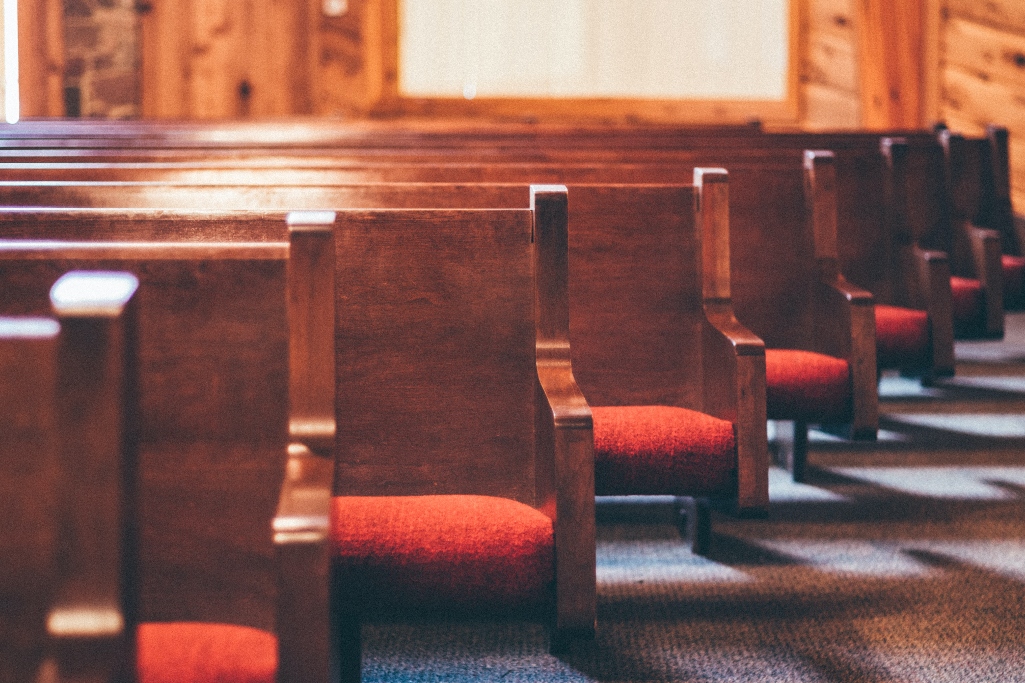
Pastor Jordon Willard said he didn’t know much about mental health issues until dealing with his own struggles starting in 2018.
Twice during 2018, Pastor Jordon Willard faced health symptoms he had never experienced before, such as dizziness and heart palpitations. He woke up in the middle of the night with his heart racing and severe headaches.
Both times Willard thought to himself that he simply needed to get more rest. He rested a few days from his ministerial service leading revitalization efforts at a North Carolina Baptist church. But when he got back to work, he returned to his old ways. The symptoms returned the following February. This time they lasted for a week.
Willard began imagining the worst. The symptoms mirrored a heart attack or stroke. At the emergency room one evening, the doctor ran a variety of tests on his brain and his heart. Nothing physical was wrong. Then the doctor started asking questions about the stresses in his life. It didn’t take long for the doctor to see a pattern.
“He ended up telling me that I was most likely experiencing severe and consecutive panic attacks,” said Willard, who today pastors First Baptist Church of Weddington, N.C. “The interesting thing is the symptoms of these panic attacks mirror those of a stroke or heart attack. For me, it was actually very relieving to know that there’s nothing wrong with me, nothing wrong with my brain, there’s nothing wrong with my heart. Now, I can really begin to focus on getting healthy mentally.”
Until that time, Willard knew little about mental health. Anxiety and depression were issues he helped parishioners through, not a diagnosis for his own struggles. But that fateful night changed everything.
“It was really then that I started taking mental health seriously as a pastor,” Willard said. “I knew that for me to enjoy a long ministry, not to mention live to see my children grow up, I needed to put in place some healthy rhythms and some healthy boundaries that would help me foster mental health.”
Two difficult years
Willard is grateful that he began this journey before the arrival of COVID-19 the following year. As challenging as ministry had been prior to 2020, the last two years have brought unique challenges many church leaders simply weren’t prepared to face.
“(My experience the prior year) completely transformed the way I handled 2020 and 2021,” Willard said. “I wouldn’t have said it then, but I’m so grateful that God allowed that to happen when it did.”
While he still found many of the ministry decisions surrounding the pandemic to be difficult, he now had the necessary tools to handle them. For example, Willard remembers making the decision with other leaders of the church not to meet in person for a few weeks in March of 2020. He was tempted to hyper-focus on the negative potential outcomes, but instead he leaned on some of what he had learned about his mental health, particularly spiritual lessons drawn from the book of Philippians and a spirit of openness with other pastors and his church.

Jordon Willard has leaned heavily on New Testament principles to deal with the burnout and depression he’s faced in ministry.
While ministry has always had unique challenges, the last two years have been particularly tough for church leaders. With the arrival of COVID-19 in early 2020, pastors had decisions that no seminary or Bible college had properly prepared them to answer.
Articles in Christianity Today, The Wall Street Journal, The Washington Post and other publications have highlighted how “The Great Resignation” – a documented trend over the past two years of people quitting their jobs – has also impacted pastors. In April 2022, Christianity Today described a surprisingly large number of pastors who hung on to ministry roles despite growing disillusionment during the past two years.
Jerry Lewis, lead pastor of Grace Community Church in Marion, pointed to three specific issues that led to increased stressors for pastors because of COVID-19. First, isolation weighed on many pastors. As shepherds, they were accustomed to spending time with other people on a regular basis. Second, many pastors who had become performance-based weren’t seeing the results of their ministry.
Divisions over politics impacted many churches in 2020 and 2021, as well. Lewis said he talked to a pastor of one large North Carolina church who lost two families in one day – one because the pastor was too liberal and the other because he was too conservative.
Chuck Whitley, pastor of Poplar Springs Baptist Church in State Road, N.C., says decision fatigue was another factor in the burnout many pastors faced during the pandemic.
“Constant decisions had to be made,” Whitley said. “You never could just say, ‘This is what we’re going to do.’ Because the next week, you might get a report that three or four people in your congregation now have COVID and then you’d have to make another decision.”
Finding the other side of ministry burnout
Heath Lloyd, who has pastored Fairview Baptist in Reidsville, N.C., since 2005, knows firsthand about dealing with burnout in his 25 years of ministry. A ministry calling isn’t like many other careers. Pastors can’t just walk away from their concerns when they step outside of the church building.
“Some days you wake up and say to yourself, ‘Surely, there’s a better way to make a living than this,’” Lloyd said.
But during those days, Lloyd tries to remember that he didn’t choose ministry. God called him.
“I think being sure of your calling is very important,” Lloyd said. “I think going back and reassessing that is important. Remember that time when the Lord called you and recall it. I use that in prayer: ‘I believe You knew this before I was born, that I would be facing this.’ Make sure of your calling and remember who called you.”
Lloyd also notes how critical it is to begin each day with Bible reading and prayer. He also recommends finding other men whom you can pray with regularly. He has found great comfort in a group of pastors he meets with consistently to pray and share.
Whitley echoes Lloyd’s encouragement for pastors to find other people they can be open and honest with. A pastors’ group he met with during the COVID-19 pandemic became a critical part of Whitley’s mental health during that time.
“During COVID, we met pretty regularly, and just knowing that there were other brothers serving with me was important,” Whitley said. “It would have been a pretty lonely season if it were not for those brothers. We would gather, just encourage one another and pray for one another. Sometimes we would just complain to one another. It was nice, because it was a place where we could all be genuine, real and authentic.”
Willard has leaned heavily on New Testament principles as he tried to deal with the burnout and depression he faced in ministry during his crisis in 2018-19.
“I really spent a lot of time in Philippians 4:1-9,” Willard said. “This is a passage that I have known for years. I’ve even taught and preached this passage. But I didn’t really understand how powerfully this passage deals with depression. Out of it, I have developed some keys that have unlocked joy and peace for me.”
Willard points specifically to seven principles: praise, presence, preparation, prayer, perspective, positivity and practice. He describes them in a pair of blog posts for the Center for Preaching and Pastoral Leadership at Southeastern Baptist Theological Seminary in Wake Forest, N.C.
(EDITOR’S NOTE – This article first appeared in the October issue of the Biblical Recorder magazine. The Baptist State Convention of North Carolina provides a pastoral health assessment and a number of helpful articles designed to strengthen pastors. Resources are available at ncbaptist.org/pastoral.)


